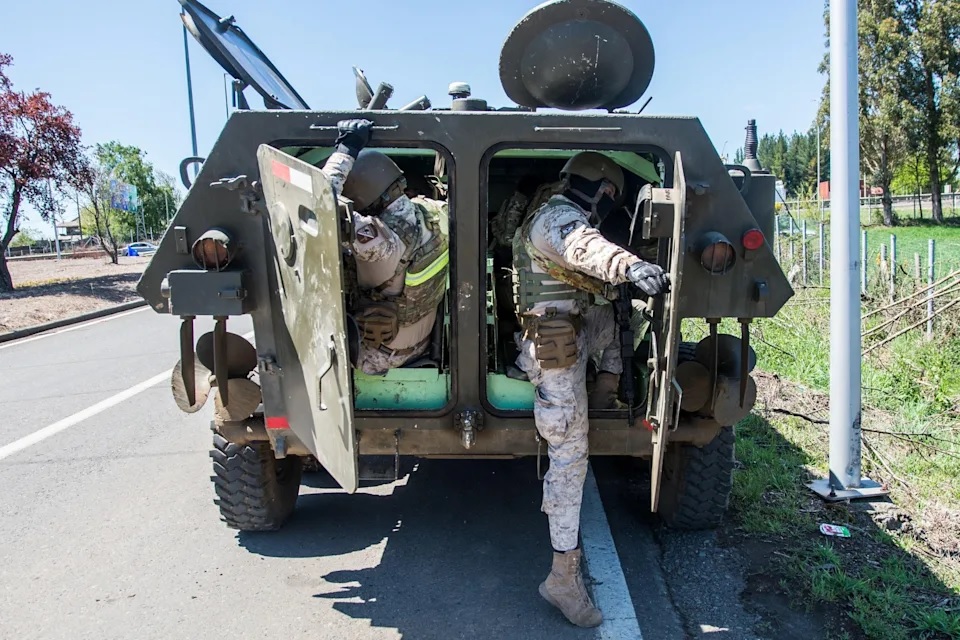RIO DE JANEIRO, BRAZIL – This Wednesday, January 26, the Chilean Parliament approved the extension for fifteen more days of the militarization of an area in the south of the country where there has been a territorial conflict between the state and the Mapuche community for decades, which has worsened in recent months with an escalation of violence.
This measure, which has been in force since October 12 and allows the Armed Forces to collaborate in police operations, has been strongly criticized by the opposition and indigenous movements, which maintain that it only adds more tension to the bitter dispute.
Chilean President Sebastian Piñera asked Parliament to renew the “State of Exception”, a procedure he repeated every two weeks since last October.
The Chamber of Deputies gave the green light to the request by 70 votes in favor, 48 against, and four abstentions; the Senate approved it with 16 votes in favor, ten against, and one abstention.
The militarization covers four provinces in the regions of Biobío and La Araucanía, which have recently experienced a wave of disturbances with frequent attacks on agricultural machinery and land, fires, and shootings with fatalities.
Some of these episodes are part of the “Mapuche conflict”, which confronts the state and the country’s main indigenous group, which claims the lands they have inhabited for centuries and which now belong, for the most part, to large agricultural and forestry companies.
The measure will be in force until February 23 and allows the restriction of the right to assembly and locomotion of the area’s inhabitants.
“Without the state of emergency, we would probably have more murders, not less. Since the beginning of the state of emergency, there has been a 46% decrease in violent acts”, affirmed the senator of the ruling party Felipe Kast, of Evópoli (center-right).
Meanwhile, former presidential candidate and senator Yasna Provoste of the Christian Democracy party added that “new bases must be laid to re-establish relations between the State and the indigenous peoples”.
“Using only repressive procedures is not the way,” she said.
Militarization is an increasingly hot topic in the country, especially in recent weeks that coincide with the end of Piñera’s mandate, a staunch defender of the measure, and a new president, Gabriel Boric, who has an opposite idea.
In the last week, the former student leader and his future Minister of the Interior, Izkia Siches, expressed their opposition to keeping the more than 2,000 uniformed officers on the streets once he takes office on March 11.
“A state of emergency cannot be normalized (…) There have been fewer attacks, but when you still have lives at stake, you realize that this has not helped,” said the president-elect during his first televised interview.
Meanwhile, Piñera announced that he intends to maintain militarization until ending his term.
“I think it is important to be well informed because the state of emergency has allowed us to deploy the Armed Forces in a logistical support task that has been very useful,” he said this week.
There have been several recent attacks, the most serious on January 18, when two men were killed after being shot in the communes of Cañete and Collipulli within hours of each other.
With information from EFE


